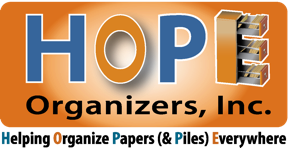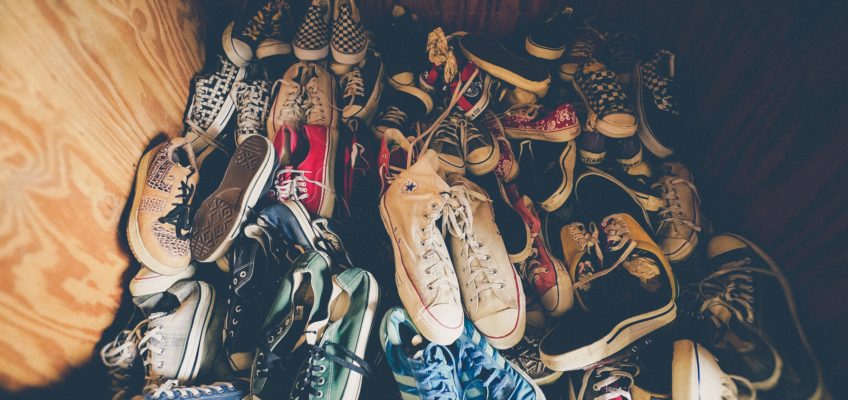Have you made a decision to declutter, but after sorting through your stuff, you cannot let go?
Why do you hesitate? What made you reconsider?
You probably have reasons to justify every item that you choose to keep. You feel attached.
Eventually, you will not be able to declutter at all because you believe that you will need everything someday.
When it comes to deciding what to keep or throw away, we feel uneasy. We overthink and delay getting rid of things.
You have the willpower to release clutter, but there is an urge to retain it.
Here are some common reasons why you have the tendency to think ‘I might need it someday’:
1. Environmental: We all want to take care of our environment, and we think twice before tossing things out. We prefer to repurpose them. If you are a crafter, you want to show how creative you are by transforming an old shirt into something else like a quilted rug. The tendency is that you will keep everything for your creative pursuits. In the long run, you will have so much and cannot possibly use them all. You will not have enough time and energy to execute your ideas. Repurposing things will require bigger space and cause additional clutter. It is great to be ecologically conscience but not to the point where it causes you stress.
2. Loss: You or someone you may know, may have experienced great loss. My parents lived through the Great Depression and war so they recycled and repurposed as much as they could. Money was tight and they “made do”.
3. Sentimental value: Your grandmother gave you a lovely set of teacups, but they are just for decorative purposes. There is always an emotional thread behind an item that you cannot simply part with. The memory is special and can stay, but let go of the items. Let go of the guilt, too. A better way is to take a photo of those items before you donate them. Then, you can organize those photos into a special album and reminisce. This will create a more positive experience and free your space of clutter.
4. Excessive worrying: Worrying about the future and thinking that by holding on to items then you can control the future is an illusion. Holding on to things gives us a false sense of security and stability. You believe that even though your items are old and useless, you feel that there will be a chance in the future that you can utilize them. You cannot bear the thought that if you need the items, they will be gone. Breathe and do not hold on to unhealthy thoughts and worry. You cannot control your future.
5. Cost: People get concerned about how much money they are throwing away if they dispose of unused items and the expense of having to buy replacement items. But holding on is self-defeating. On one hand, you want to clear out and open space because of the benefits it brings to the physical locale and psyche. On the other hand, how do you balance saving dollars with costing you stress, the possible doctor appointments, massages, spa days, or more to de-stress you? If costs are a major concern, then set up a moratorium, such as “I will not buy anymore paper towels – even if they are on sale – until I finish off the 20 that are in the garage.”
What holding on is really about is WORRY – worrying about the future that we cannot control. Yet, we believe that if we hold on to the item, then we somehow can control the future. We imagine that by holding on to the item we are prepared for the future, but it is an imaginary future because we do not know what the future holds. This type of thinking is a false sense of safety, security, and stability. We cannot bear the thought that the items will be gone when we might need them in the future. Breathe through and talk yourself out of these unhealthy thoughts or have a professional organizer guide you through the decluttering process. The truth is that it is open space that feeds the soul and gives us the strength and empowerment to face the future, not stuff.
If you have not used this item in 5 years, the probability that you will need it in the next 5 years is very rare, and even if you do, can you purchase it again or borrow it or rent it?
One needs to balance the stress the clutter in the home is causing just to save a few dollars versus purchasing it again if needed in 5 years.
If you are ready to get things in order, shift your perspective. Start your life from a place without fear and limitations. The present offers you more possibilities and choices. Stop anticipating the future. Know what you need at the moment and accept that. Adapt to your surroundings. Live within your space.
Do not accept that you might need the item someday. Your clutter keeps you from focusing on underlying issues and what truly matters in life. If you continue to gather material possessions, you will become a slave to your clutter, and the clutter will own you!
Be more decisive and clear out your space. Sell or donate the items that you no longer use. Those items served their purpose. Think of the people who will benefit from your stuff. Let your unused items serve those people now. You will appreciate decluttering even more because you are growing and learning. You are opening your life to something better to come along. Choose to have peace of mind. You will feel more content and fulfilled. Live in the now, not the future.

